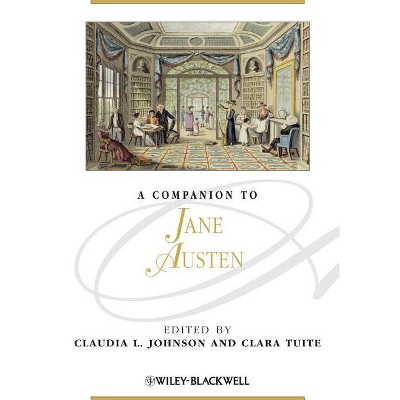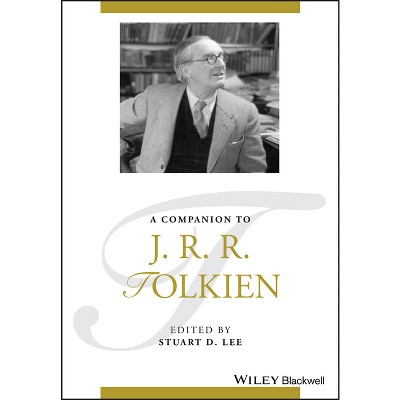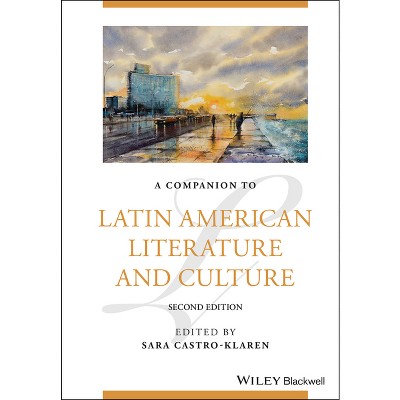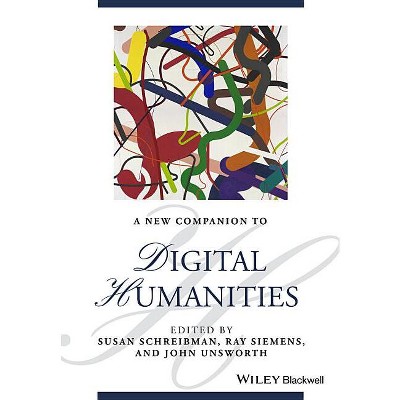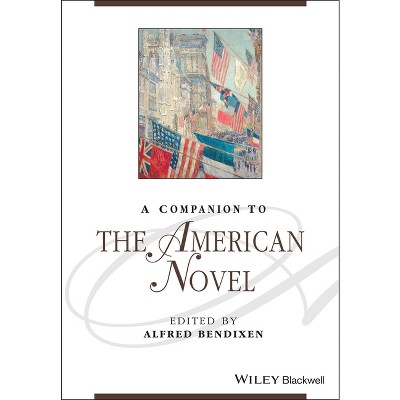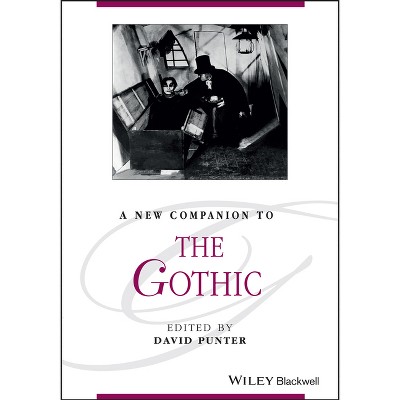A Companion to George Eliot - (Blackwell Companions to Literature and Culture) by Amanda Anderson & Harry E Shaw (Paperback)

About this item
Highlights
- This collection offers students and scholars of Eliot's work a timely critical reappraisal of her corpus, including her poetry and non-fiction, reflecting the latest developments in literary criticism.
- About the Author: Amanda Anderson is the Andrew W. Mellon Professor of Humanities and English at Brown University, USA, and Director of the School of Criticism and Theory.
- 544 Pages
- Literary Criticism, European
- Series Name: Blackwell Companions to Literature and Culture
Description
Book Synopsis
This collection offers students and scholars of Eliot's work a timely critical reappraisal of her corpus, including her poetry and non-fiction, reflecting the latest developments in literary criticism. It features innovative analysis -exploring the relation between Eliot's Victorian intellectual sensibilities and those of our own era.
- A comprehensive collection of essays written by leading Eliot scholars
- Offers a contemporary reappraisals of Eliot's work reflecting a broad range of current academic interests, including religion, science, ethics, politics, and aesthetics
- Reflects the very latest developments in literary scholarship
- Traces the revealing links between Eliot's Victorian intellectual -concerns and those of today
From the Back Cover
George Eliot is widely viewed as the finest English novelist of the nineteenth century, the era in which the form reached its zenith. Her voluminous output, matched by an equally unbounded intellectual depth and nuanced social commentary, brims with insight into every aspect of culture and society, moving effortlessly between topics including religion, ethics, the law, finance, politics, science and aesthetics. The essays in this collection offer students and scholars of her work a timely critical reappraisal of her corpus, including her poetry and non-fiction, that reflects the latest developments in literary criticism. The contributors, all leading Eliot scholars, draw on some of the most innovative work in the field, exploring the relation between Eliot's concerns and those of our own era, and assessing her work in the context of contemporary academic interests such as religion and secularism, internationalism and cosmopolitanism, and ethics and aesthetics.
Review Quotes
"A Companion to George Eliot is divided into four parts: Imaginative Form and Literary Context; Works; Life and Reception; Eliot in Her Time and Ours: Intellectual and Cultural Contexts ... [It] contains insights, on for instance, Eliot's narratology ... to on-going debates on evolution. There are fine essays on relatively neglected works such as Romola, Felix Holt, the Radical, and her poetry, as well as the hardy perennials ... Recommended for general readers, graduate students, researchers and teachers." Reference Reviews
"Many of the literary-critical voices contributing essays ... stand out, replete with critical insights on, for instance, Eliot's narratology, use of form, critical reception, African American connections, awareness of the law, and her relevance today ... The collection offers a very helpful, detailed index. [A] most useful critical reference work ... Recommended: Upper-division undergraduates through faculty; general readers." CHOICE
About the Author
Amanda Anderson is the Andrew W. Mellon Professor of Humanities and English at Brown University, USA, and Director of the School of Criticism and Theory. Prior to joining the Brown faculty in 2012, she taught at Johns Hopkins University, where she served as department chair from 2003-2009. She is the author of The Way We Argue Now: A Study in the Cultures of Theory (2006), The Powers of Distance: Cosmopolitanism and the Cultivation of Detachment (2001), and Tainted Souls and Painted Faces: The Rhetoric of Fallenness in Victorian Culture (1993). Prof Anderson has also co-edited, with Joseph Valente, Disciplinarity at the Fin de Siècle (2002).
Harry E. Shaw is Professor of English at Cornell University, USA, where he has been teaching since 1978. Specializing in nineteenth-century English novels and narrative poetics, he explores the influence of the British novel on the rise of historical consciousness in Europe, and the ways in which novels help us conceptualize our place in history. He is the author of The Forms of Historical Fiction: Sir Walter Scott and his Successors (1983) and Narrating Reality: Austen, Scott, Eliot (1999), and co-author of Reading the Nineteenth-Century Novel: Austen to Eliot 2008.
Shipping details
Return details
Trending Fiction






